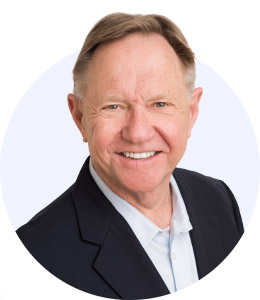We learn by doing. Recently a personal situation came up that I did not know how to handle. I called someone to ask for advice. The advice I received was to be compliant with the process that people with expertise were recommending.
It seems the more experience I get, the easier it is to break what I once made complex down to simple steps. I believe that is true for many people. My father was a mechanic. He loved engines. He could listen to an engine and know exactly where to focus. As I grew up, when I would pull into my parents’ driveway, my father would come out and give me the “pop the hood” signal. He wanted to make sure I was keeping the oil right.
I don’t have the experience to listen to an engine and have a good idea what is wrong. My father did. His ability was no different from any person who has lots of experience in a particular area. For example, a chef can take a small taste of a dish and evaluate it immediately. Most of us cannot do that.
The knowledge we gain from experience does not mean that more research is not needed. Based on experience, a physician will often have a good idea of what is needed; however, they will still take time to use other diagnostic tools to ensure the right diagnosis and treatment plan.
It would be great if everyone listened to the expertise of those who’ve learned by doing. However, it is not always that simple.
This past year in working with organizations, I have shared the “My Cousin Al” formula for how people move through change. It is defiance, compliance, and reliance.
What this means is initial defiance to a new idea or a change is normal. People naturally resist change. What a leader needs to focus on is how to help the person accept or comply with what is being recommended. Once they’ve moved through compliance, they will usually land at reliance, meaning they have come to depend on the new and better way of doing things.
In one of Wayne Dyer’s books, There’s a Spiritual Solution to Every Problem, he shares that while listening to or reading a message is nice, it is the doing that leads to the answer. So if we accept this truth without getting lost in the defiance shown by the people we are leading, we can then bring the focus to achieving the desired outcome.
My workshop sessions center on how to help a leader achieve compliance from others. It sure sounds easier than it is. Imagine how easy life would be if those you lead rushed to put in place what you recommended and to do it exactly the way you wanted it done. However, no one ever said leadership is easy!
Here are some tips on helping people reach compliance:
- Take time to explain the why behind what is being asked. I spend time in communities helping them become better places to live. The why that works the best is the fact that if the community is a more vibrant place to live, then young people will stay or move back. It comes down to talent retention and attraction. The goal is not a great downtown. That is a tactic. The goal is making sure you have great talent.
In healthcare, better patient outcomes are the why. The more the desired behavior is connected to achieving them, the more likely the behavior will be done consistently. Great places have “always” behavior, not “usually” or “sometimes” behavior. Once the behavior is connected to clinical outcomes, it connects to a person’s values. Then the person cannot not do what is needed to help the patient.
- Study each employee’s personality. Figure out their key drivers. These can vary. When you can learn what truly motivates people, compliance is easier to achieve.
- Review what skills are needed for employees to be successful. It might be enhanced technological skills. It might be communication skills. Once you’ve taken the time to identify these skills, you can ensure they receive any additional training needed.
- Be realistic on how long gaining the needed skills will take. Also, take into account the fact that until the skills are achieved at the needed level, there will be lots of attention paid to each person. Micromanaging is valuable at certain times. In fact, it is necessary at times.
- Seek feedback from those being asked to make a change. Ask what barriers may exist. Addressing those barriers will increase the chance of success.
- Recognize those who are complying. Thank them.
- Meet with those who are not complying and ask what is needed to help them comply. A very small group of people not performing as needed can take down a department and an organization.
- Put accountability systems in place to measure compliance.
- Assuming the actions being asked for lead to better outcomes, measure the improvement. Connect the dots to why that improvement is making a difference.
- Celebrate success.
You’ll find that when people learn, through doing, that a new behavior or process gets results, they see the benefit of compliance. When an organization is great at executing behaviors and processes that lead to better performance, those behaviors and processes will usually become the norm. Reliance follows compliance. The best outcome is a better performing organization.
I find that some people view the words defiance and compliance as having negative connotations. They shouldn’t. Both are natural steps in learning and achieving positive change. Guiding people through them is one of the leader’s most important roles. It’s not easy but the rewards can be amazing.







